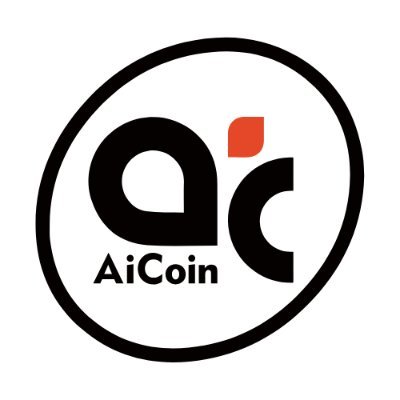NFT marketplace X2Y2 shuts down as trading volume drops 90%
X2Y2 is closing its marketplace after three years, acknowledging the decline of NFT trading and shifting focus to AI.
NFT marketplace X2Y2, which was launched as an alternative to OpenSea and LooksRare, will shut down on April 30, citing a steep decline in trading activity and the challenges of staying competitive.
In a March 31 statement , the project’s mysterious TP founder said the X2Y2 team is “sunsetting X2Y2 as an NFT marketplace” after three years in the industry, adding that the “90% shrinkage of NFT trading volume from its peak in 2021 is for sure one of the many reasons.”
“The NFT chapter taught us a lot — most of all, that lasting value beats chasing trends. That lesson’s why we’re drawing a line here, not a pause or a maybe, but a full stop on X2Y2 as we knew it.”
TP, founder of X2Y2
X2Y2, which was once positioned as a key player in the space, reaching $5.6 billion in all-time trading volume and peaking as the second-largest NFT marketplace behind OpenSea , has since shrunk to $53.6 million, per data from Token Terminal.
The platform’s smart contracts will remain operational, allowing users to interact with them, but the team warned that the shutdown could impact its token.
“I know this might sting, especially when it comes to token price. X2Y2 tokens were tied to this NFT vision, and as we close this chapter, that’s likely to hit hard. I feel that with you, and I’m not here to sugarcoat it.”
TP, founder of X2Y2
Following the news, the X2Y2 token dropped 6.95%, per data from crypto price aggregators.
While closing the marketplace, X2Y2 is not completely stepping away from crypto. The team hinted at a pivot into AI, calling it “hands down the biggest paradigm shift we’ll see in our lifetimes.” While no details were given, the team described their next project as something that “takes everything we’ve learned and aims higher,” focusing on “yields in a permissionless way, powered by AI.”
Tether Invests $10.8 Million in Be Water to Revolutionize Digital Content
Tether Inc. has made a strategic investment in Be Water, a media company specializing in film, audio, and live content distribution. Through a $10.8 million (€10 million) capital increase, Tether will acquire a 30.4% stake, supporting Be Water’s vision of integrating technology with content creation.
This investment reflects Tether’s broader strategy of diversifying beyond financial technology. With over $13 billion in 2024 profits and $113 billion in U.S. Treasury holdings, Tether has already expanded into various sectors, including a $775 million investment in video platform Rumble and a $200 million stake in Blackrock Neurotech.
“At Tether, we recognize the power of storytelling and the importance of independent media in shaping informed societies. Our investment in Be Water aligns with our vision to support technology-driven innovation across industries,” said Paolo Ardoino, CEO of Tether.
With Tether’s backing, Be Water plans to develop advanced digital infrastructure, enhance investigative journalism, and expand globally. This partnership aims to leverage blockchain and digital tools to revolutionize media distribution, further cementing Tether’s role in driving technological innovation across industries.
免责声明:本文章仅代表作者个人观点,不代表本平台的立场和观点。本文章仅供信息分享,不构成对任何人的任何投资建议。用户与作者之间的任何争议,与本平台无关。如网页中刊载的文章或图片涉及侵权,请提供相关的权利证明和身份证明发送邮件到support@aicoin.com,本平台相关工作人员将会进行核查。
The Minister Of Digital Affairs Paves The Way For Bitcoin Mining In France
What if France became a hub of innovation for Bitcoin? While the debates on cryptocurrency often oscillate between fascination and distrust, Clara Chappaz, the delegated minister for Digital Affairs, opens an unprecedented door: exploiting French nuclear power to mine Bitcoin. A bold proposal, blending economic pragmatism and energy sovereignty. During a visit to Ledger, a French leader in blockchain security, the minister outlined a vision where the Hexagon could tame the paradoxes of Bitcoin. Not without nuance.
The idea is not new, but it is gaining credibility. EDF, a public energy giant, is drowning under a debt of 65 billion euros. However, its nuclear plants sometimes produce an unused surplus of electricity…
Why not convert this energy into Bitcoin? A simple calculation: cryptocurrency mining valorizes excess electricity, generating instant revenues. Marine Le Pen mentioned it in Flamanville, but the government remained silent. Until now.
Clara Chappaz breaks the taboo. “This subject has been captured by extreme fringes of public debate, while it deserves serious analysis”
No noisy communication, but a thorough study. The recent appointment of Bernard Fontana at the head of EDF offers a fresh perspective. “We need to evaluate this without ideology, ask the right economic questions”, she insists . A pragmatism that contrasts with traditional postures.
There remains a pitfall: the image of Bitcoin, often associated with speculation or pollution. The minister knows this. “It’s inter-ministerial, not just digital”, she slips.
An implicit admission: to convince Bercy or the Energy Transition, figures will be needed, not slogans. What if France became a low carbon mining laboratory? The equation is tempting… but fragile.
If Bitcoin crystallizes economic hopes, it also questions French digital sovereignty. Another challenge awaits Clara Chappaz: reconciling innovation and regulation, between digital euro and administrative sluggishness.
The digital euro is advancing, but fears persist. Christine Lagarde (ECB) sets October 2025 as the deadline for its launch.
Behind the scenes, Clara Chappaz listens to French stakeholders. The protection of personal data is crucial, she reminds.
A message to Brussels, where the project struggles to reassure. The minister promises dialogue spaces to carry local voices. But Europe is moving slowly, and France must play collectively.
“Let’s organize ourselves!”, she urges the ecosystem. Specifically, French companies need to unite their positions, despite their differences.
A challenge: how to reconcile pro-Bitcoin start-ups and traditional banks? The minister sees herself as a mediator, “a bridge between France and Europe.” A key role, as the European regulator (MiCA) imposes strict rules.
Another grievance: the delays from the AMF. PSAN approval requests drag on, hampering innovation. Clara Chappaz tackles the subject head-on. “I’ve discussed this with the AMF. Let’s simplify, let’s draw inspiration from abroad.”
A veiled criticism towards an administration that can sometimes be paralyzed. For the minister, accelerating procedures is vital. Can France become a crypto hub while respecting standards? The balance is delicate.
Clara Chappaz embodies a new generation of decision-makers: tech-savvy, yet realistic. Her approach to Bitcoin? Neither idealism nor rejection, but a quest for added value made in France. Between nuclear mining and the digital euro, the road is fraught with obstacles.
But one certainty remains: France refuses to be a spectator in a society where cash could soon disappear .


 أقل سعر
أقل سعر أعلى سعر
أعلى سعر 












































